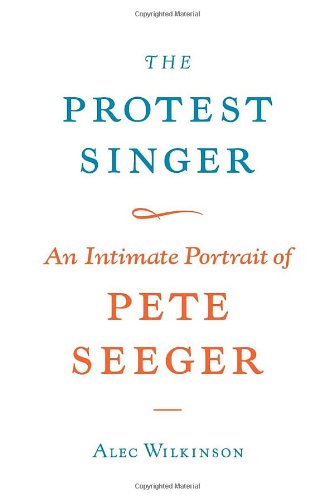Inhaltsangabe
A true American original is brought to life in this rich and lively portrait of Pete Seeger, who, with his musical grace and inextinguishable passion for social justice, transformed folk singing into a high form of peaceful protest in the second half of the twentieth century. Drawing on his extensive talks with Seeger, New Yorker writer Alec Wilkinson lets us experience the man’s unique blend of independence and commitment, charm, courage, energy, and belief in human equality and American democracy.
We see Seeger instilled with a love of music by his parents, both classically trained musicians; as a teenager, hearing real folk music for the first time; and as a young man, singing with Woody Guthrie and with the Weavers. We learn of his harassment by the government for his political beliefs and his testimony before the House Un-American Activities Committee in 1949. And we follow his engagement with civil rights, the peace movement, and the environment—especially his work saving the Hudson River and building the ship Clearwater. He talks ardently about his own music and that of others, and about the power of music to connect people and bind them to a cause. Finally, we meet Toshi, his wife of nearly sixty years, and members of his family, at the house he built on a mountainside in upstate New York.
The Protest Singer is as spirited and captivating as its subject—an American icon, celebrating his ninetieth birthday.
Über die Autorin bzw. den Autor
Alec Wilkinson began writing for The New Yorker in 1980. Before that, he was a policemanin Wellfleet, Massachusetts, and before that a rock-and-roll musician. He has published eight other books—two memoirs, two collections of essays, two biographical portraits, and two pieces of reporting.His honors include a Guggenheim Fellowship, a Lyndhurst Prize, and a Robert F. Kennedy Book Award. He lives with his wife and son in New York City.
„Über diesen Titel“ kann sich auf eine andere Ausgabe dieses Titels beziehen.
